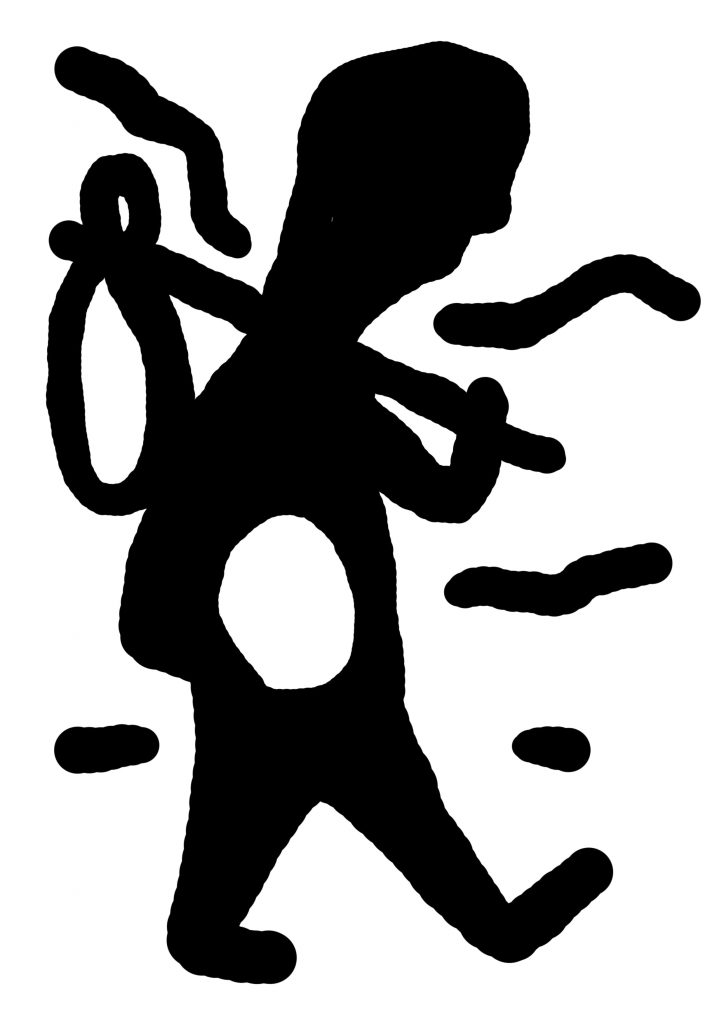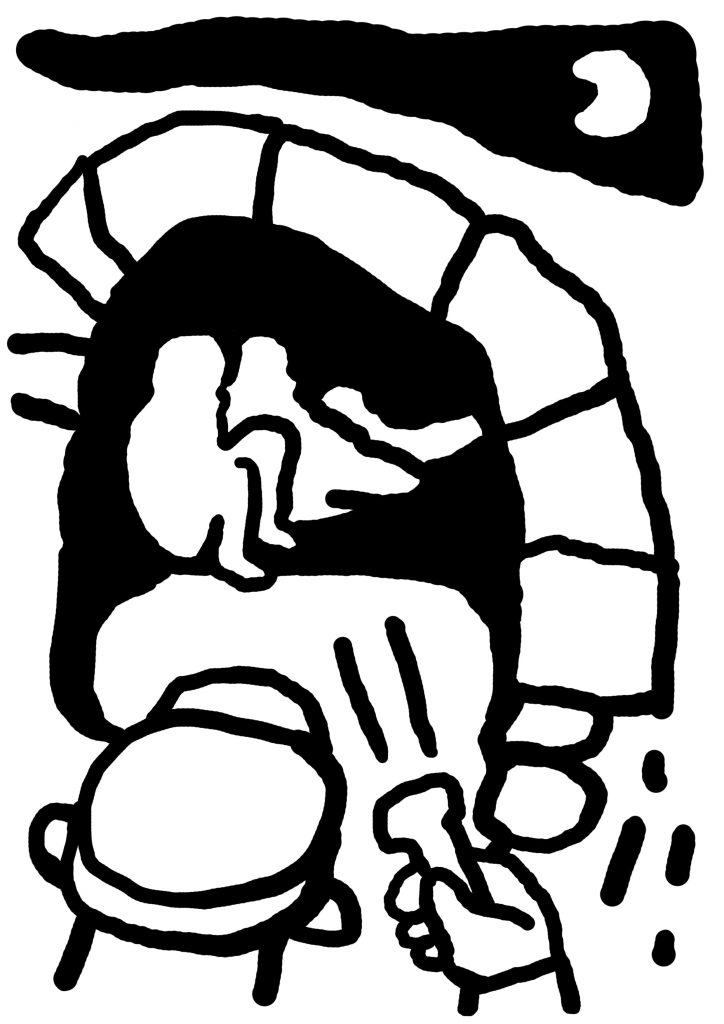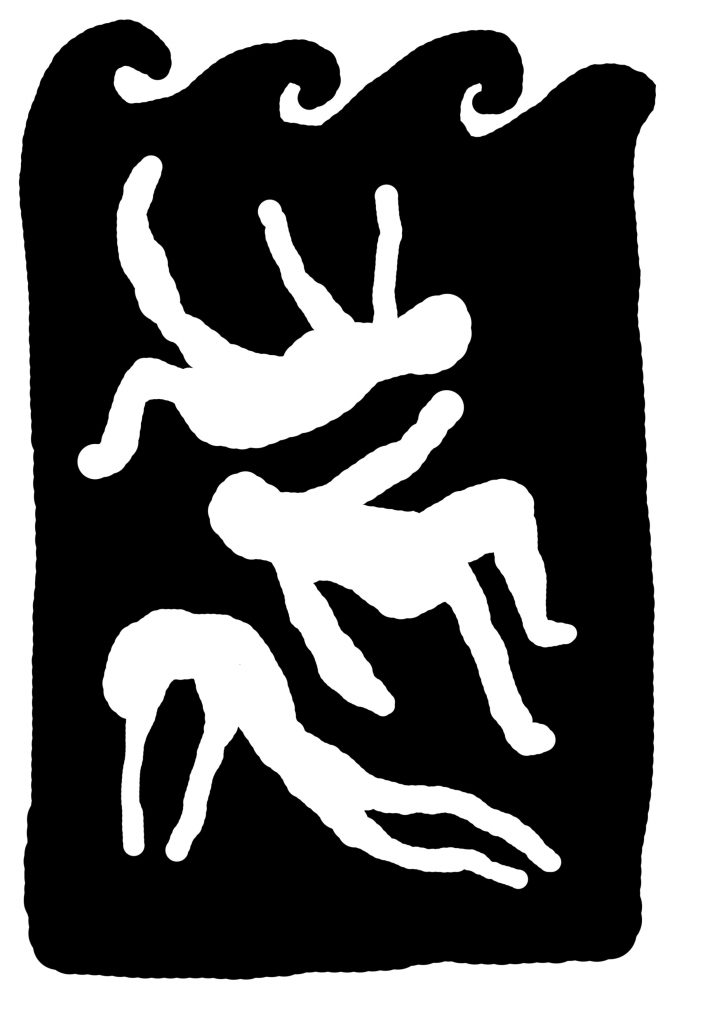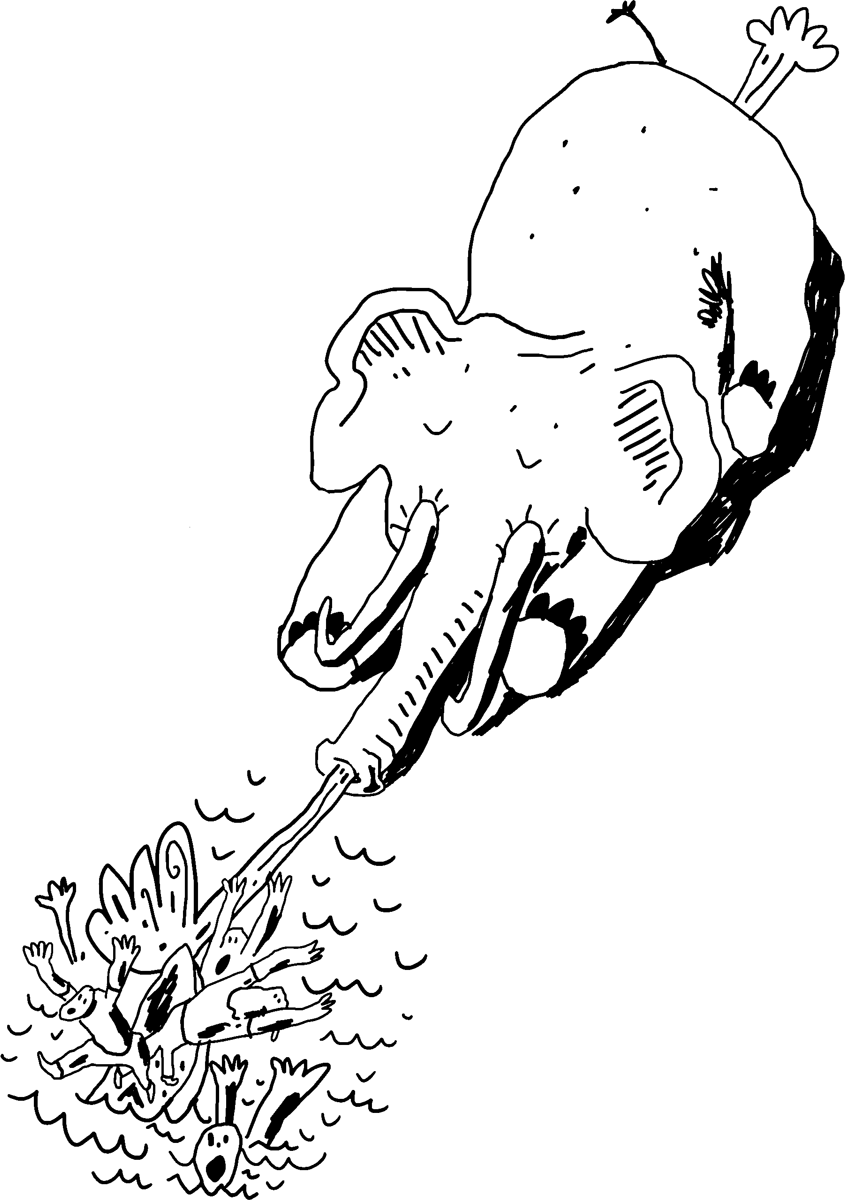(part one)
Swiss life could be de ned as a prison life. I am in prison just because I don‘t have documents. If you don‘t have documents, life here is full of tension, because if you are controlled by the police, you are going to be in prison. We immigrants living in Switzerland have no peace and there are no human rights for us. We also don‘t have freedom – especially we black people. Could you imagine, that a policeman will walk in where many people are and controls only blacks and leaving others because of their skin color? Is that not a racist practice? Meanwhile there is no love and respect for immigrants, especially black people. Switzerland have one of the most racist policemen in the world, but you wouldn’t know this if you are real Swiss. From all my ndings as an African black migrant living in Switzerland, some laws here are mainly for migrants but people outside prisons don‘t know this, because swiss police and government paint a good picture in the public eye and everybody will think that their government or police is correct. Meanwhile I was hearing this from people before I experienced it here in prison by myself. Nevertheless my experience here as a black migrant in swiss prison is, that they treat us here as SLAVES. The security men will wake us up in the morning at 7h15 by unlocking doors and they will make sure the doors are widely open, so as to disturb and wake you up from sleep. If you ask why do you do that, the answer you will get is: „this is a prison and not a hotel“. When you have visitors according to the law, if you were alone with your visitor in the guestroom, your are going to be naked by prison guards. But randomly they do it even when you had many visitors. If they search you and you ask why, they will still tell you they must naked you and that you as a person can’t say no. If not they will take you to a place called „Bunker“ – that is a very bad place where you will be locked up alone in a room and would be tortured by them. Perhaps you could be there like one week without seeing or going outside. They don‘t care about us at all here in prison. To be frank, many people I met here in prison did not commit any crime, some have been in prison for two years, while some others have six months and there are some cases of more than that. And when you ask them, you will nd out that it is only because of not having papers or documents. Another thing I experienced here in prison is when you are brought to the prison the police takes all your money, so that you are forced to work in prison. There is a work they provide here in prison, which ought to be two hours but they will use us to do the work in 2 hours and thirty minutes. Meanwhile the work is too big, but for the whole day they give you 6 Franks. Coming to the aspect of the food, we eat here in prison only two times a day. They give us food at around 11:am and the dinner is at 5:pm. There is a small kiosk here in the prison, where the things are sold for the double price as outside and the kiosk is open only fridays, that is once in a week and it’s only 20 minutes. So if you miss that minutes of shopping time you have to wait till the next week friday. Remember I have earlier stated, that the money you came with, they collect it from you, so you have to work while you are in prison. If you refuse to work here in prison they will hate you and you won‘t have access to many things here in prison. They make sure you are punished. Moreover you have to be well sick before they will take you to the hospital. If not it is not possible because they treat you like a SLAVE in prison. Even if you are taken to the hos-pital your legs and hands must be handcuffed by the police while the treatment is going on, unless the doctor instructs the police to remove the handcuff. If not the handcuff will be there from the time you are going to the hospital until you are back in the prison. And before you are allowed to go inside the prison you will be naked. Meanwhile, if you go to court, when you are back you will be naked by the prison guards or anywhere else you go to, when yo are back they must search you before you could be allowed to go inside the prison. If you ask them, they will tell you, it is because you are in Switzerland. Another thing here in prison ist, that you have the right to see a lawyer – either they give you one ore you are allowed to get a lawyer. But they deny you of that, then if you ask the answer you get is: No, that you are in Switzerland. All these treatments exerted on us are all about not having papers or documents – what they call ILLEGAL. Furthermore if you are controlled by the police or border guard, and you don’t have the right papers, they will take you to the police station, take your fingerprints to see if you have been ngerprinted elsewhere in Europe. If you have you will be sent where you were registered, but if you don’t have anywhere in Europe, immigration police will force you to seek for asylum in Switzerland and after three months you will be rejected with a negative decision and they send you to prison. There in prison you are brought to the court and get three months for illegal stay, then after three months, they will give you another three months till maybe 18 months and after you will be deported to your country of origin. For instance, if you have a negative swiss decision and you go to another country, when the country calls Switzerland, they tell them to send you back. And back in Switzerland the immigration police will take you to prison, then after two days they bring you to the court – imagine for being illegal, without giving you a lawyer and they will be against you and ask you, why did you travel out of Switzerland. If you tell them, it ist because you have got a negative decision, they tell you that you don’t have any right to go anywhere except your country of origin without even allowing you to express yourself in front of the court. There in the court you will be given three months until eighteen months before you are deported back to your country. Outside the prison Most at times here in Switzerland police normally go to african shops to control black people buying something to eat or to drink, what sometimes could scare away the customers of the shop owners. That is why I said, we blacks or black immigrants walk in fear in Switzerland more than in other countries in Europe. We are meant to understand that we don’t have rights as a black immigrant living here.
(part two)
Swiss life is full of prison, if you don’t have documents, because once you get controlled by the police, they will put you inside prison. But if you have other european countries documents, they will try to give you what they call „Verboten“, which means, you won’t be allowed to come to Switzerland for so many years, depending on the years they give the person (a man I know had an Einreisesperre until 2099). For instance, there was a case like that, where Police went to an african shop and after they controlled, they left with one black person and the black guy was asking them „why should I go with you when I have document?“ and they answered, that he has VERBOTEN in France and he answered „Yes, but here is not France but Switzerland“. Could you imagine he slept in a police cell for three days before they took him to court and the judge was asking the police „what did this man do?“ Police said to the judge, that he has VERBOTEN and the guy immediately asked the police where, when and which country, because according to the person, he said he only has VERBOTEN in France for the past ten years and he has never been to France since then. Meanwhile, after the whole explanation the presiding judge told the police, that he has not seen any offense he committed and gave the police one week to nd the place he has VERBOTEN since they could not say or mention the place at the moment, because after one week they should release the man. Furthermore, a day after immigration called the man out of prison and said, we called France and they said the VERBOTEN is only in France and we have searched in our system we didn’t nd anything bad against you. After some hours he was released. This is what we blacks or immigrants experience here in Switzerland. Another one is, that if you are working in prison, if the immigration want to deport you back to your country of origin, they will not give you the money you worked for. Because there is a job, they usually give people in prison but when taking the person back to Africa or his country they will not give the person his money back, which is very BAD. They treat us as if we are ANIMALS. Therefore if your wife or girlfriend visits you and when you guys are holding each others hands while sitting in the guest room, could you imagine that the security guards would walk in and tell you people not to hold each others hands and that if not the girl or your wife or you will have problems with him. Imagine the kind of insults we are tolerating from them, you can’t hug your wife or girlfriend again because you are in prison for being ILLEGAL. This is what I call VIOLATION OF HUMAN RIGHTS! Meanwhile these things I have written here is little to compare to what we are seeing here in swiss prisons on a daily basis.



